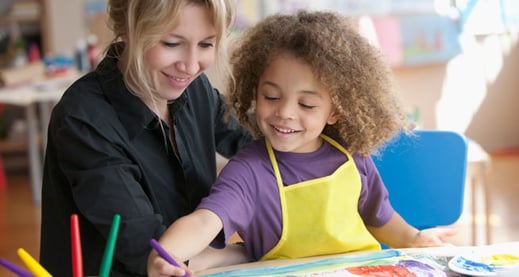
Neuroscience research has repeatedly confirmed that exposure to toxic stress—inescapable, traumatic experiences, such as chronic abuse or neglect—disrupt the development of healthy stress response systems in the brain and can lead to serious long-term consequences for children. (See this excellent series from the Harvard Center on the Developing Child for more information.)
Tragically, many children in the Head Start program have been exposed to these extremely disruptive experiences. (Let’s prevent it altogether—Early Head Start may help!) Because of this, Head Start is getting better at recognizing and addressing the needs of traumatized children. Last week in the New York Times Fixes blog, David Bornstein wrote about the Head Start Trauma Smart program, which gives individual therapy to children and teaches Head Start staff—all of them, including bus drivers—how to recognize and respond to behaviors that stem from trauma.
An evaluation of the Trauma Smart program showed that CLASS scores have increased in nearly every dimension as teachers learn how to identify and respond sensitively to children’s needs. This is great news for the children in need of individualized support, but also great for all of the children in those classrooms, who benefit from having teachers who are warm, responsive, and skilled at getting the most out of class time.
This work also underscores how fundamental effective interactions are. Much of the research that led to how we understand Emotional Support, in particular, stems from attachment theory. Attachment theory put forth the idea that early relationships help children form an internal working model of how relationships work. These internal working models influence how children approach relationships throughout the lifespan. When early relationships are warm, trusting, and predictable, children learn to expect the same from future relationships. This allows them to form friendships and trusting relationships later in life. With children spending more and more time in child care, teachers have become important attachment figures for many children, in addition to their parents and other close family members.
And for children who have experienced trauma—often relating to, or damaging, close family relationships—teachers are an even more critical piece. Traumatized children need to re-learn trust in the world around them, that they can rely on adults to care for, love, and protect them. What an opportunity for caring teachers to provide a predictable, safe, and stimulating environment.
For more on Emotional Support, look here. To improve interactions, look at strategies for each dimension listed in the CLASS Dimensions Guides.
